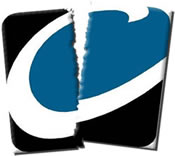 Earlier this week, Mark Ramsey blogged about Clear Channel’s "murky future," and in the process, expressed sadness for company’s employees, listeners in their markets, and for the company itself. Mark is a passionate radio broadcaster, and one of our best industry observers, and so his comments made me pause and think about the implications of Clear Channel’s problems.
Earlier this week, Mark Ramsey blogged about Clear Channel’s "murky future," and in the process, expressed sadness for company’s employees, listeners in their markets, and for the company itself. Mark is a passionate radio broadcaster, and one of our best industry observers, and so his comments made me pause and think about the implications of Clear Channel’s problems.
As a Detroiter, I know what it’s like to be held hostage by a mega-corporation like General Motors. On the one hand, you can resent their short-sightedness about where the automotive industry was headed. And you have to acknowledge their arrogance throughout the ’60s and 70s, too. Remember the saying, "When GM gets a cold, Detroit gets pneumonia?" As much as many people here in Motown hate to admit, you reluctantly rooted for GM to do well. Your livelihood depended on it.
 And so it goes with Clear Channel and its dominance of broadcast radio. Most definitely, the Wall Streetization of our business has taken its toll. Clear Channel’s history as the biggest company in radio has been very checkered, and without a doubt, they have been tarred by a brush often of their own making. While the famous "Minot Incident" was probably blown out of proportion, becoming an industry urban legend, the fact is that Clear Channel became known for its voicetracking, the canard called "Less Is More," collective contesting, and other "innovations" that have not enhanced our business.
And so it goes with Clear Channel and its dominance of broadcast radio. Most definitely, the Wall Streetization of our business has taken its toll. Clear Channel’s history as the biggest company in radio has been very checkered, and without a doubt, they have been tarred by a brush often of their own making. While the famous "Minot Incident" was probably blown out of proportion, becoming an industry urban legend, the fact is that Clear Channel became known for its voicetracking, the canard called "Less Is More," collective contesting, and other "innovations" that have not enhanced our business.
I will never forget reading an interview with Lowry Mays in Fortune magazine back in 2003 when he was quoted as saying, "We’re not in the business of providing news and information. We’re not in the business of providing well-researched music. We’re simply in the business of selling our customers’ products."
I remember thinking at the time that it would not have been that difficult for Mays to reverse that quote – and still make the financial gods happy. Had he simply noted that Clear Channel stations are a great advertising tool for its clients, but the company was dedicated to providing great radio and serving its communities, much of the PR backlash might never have materialized. Instead, the media seized on the "Evil Empire" moniker, and the bad ink continues to this day, all the way to Washington, D.C.
So, back to Mark’s questions. Do I feel sorry for the company? Do I feel sorry for its employees? Do I feel sorry for what all of this means for the radio industry?
No. Somewhat. Yes.
- Can Radio Afford To Miss The Short Videos Boat? - April 22, 2025
- Media And Technology In 2025: Believe It Or Not! - April 18, 2025
- In Radio, You Just Never Know - April 17, 2025




Leave a Reply